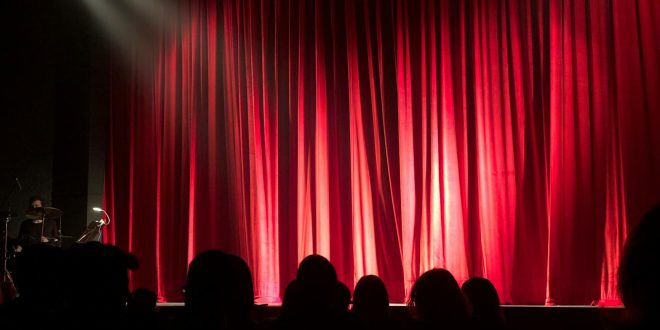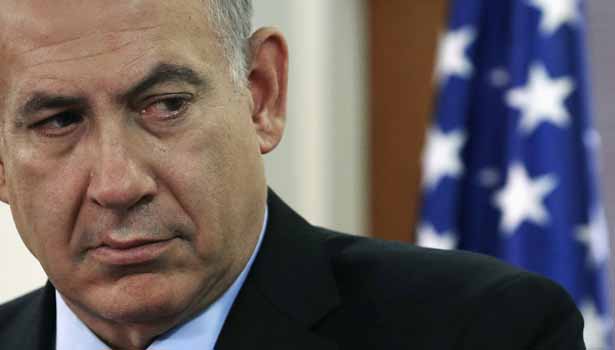Jonathan Lederer’s outreach to pro-Arab protesters at Columbia University two weeks ago left him with a punch to the right side of his face.
When activists surrounded them, Lederer said he and his brother attempted a civil exchange, telling them, “I actually want a two-state solution. I think there is too much death on both sides.”
“Jews have no history in the land. You stole our land,” those activists responded, Lederer added in an interview with a New York Post reporter. “You guys have done everything Hitler has done,” one keffiyeh-clad activist proclaimed, and he then ran off with an Israeli flag held by Lederer’s brother.
The brothers chased after him and pleaded for him to return the flag. “That’s when he turns around and punches me in the face, on the right side of my face,” said Lederer, who studies computer science at Columbia in upper Manhattan.
“I’m telling him I want peace and co-existence and he’s calling me a Nazi,” he recounted.
The level of discourse rooted in the Oct. 7, 2023, massacre in southern Israel is hardly different from that of 76 years ago, when the modern state of Israel was created. The United Nations offered Jews and Arabs a partition plan to divide the land. Jews accepted the proposal and Arabs responded by invading the land that now comprises Israel.
The Jews held onto 78 percent of the land, which left Jordan occupying the West Bank and Egypt controlling Gaza. Israel seized both land areas after Egypt and Jordan attacked Israel in 1967. The terrorist group Hamas in turn took control of Gaza in 2007 after Israel withdrew from the territory in 2005.
I was luckier than Lederer two decades ago when I attempted to engage with a friendly but dense pro-Arab student at Temple University, during the period that Palestinian leader Yasser Arafat and Israeli Prime Minister Ariel Sharon were in power. I rotated my criticisms of Sharon and Arafat. His face brightened when I faulted Sharon, but when I panned Arafat he automatically rationalized whatever mistakes I cited.
While I was left physically unscathed by our conversation, my conclusion was identical to that of Lederer’s, who said, “It’s very frustrating.”
Lederer’s experience was one of three recent episodes in which Jews were willing to meet with local advocates for Arabs and Muslims, but instead they confronted brazen hostility or stiff defensiveness from the Arab side.
In her hometown of Montclair, N.J., The Forward publication’s editor-in-chief was astonished when a Muslim imam refused to discard his perspective that Jews control the media, that Jews possess horns and that attacks upon Israeli soccer fans in Amsterdam were occasion to celebrate. In New York City, a comedy show had to be scrubbed when pro-Arab comedians voiced attitudes that the Montclair imam might embrace.
“Debate, Don’t Hate,” the comedy show at Stand Up NY in Manhattan’s East Village, was aimed at fostering dialogue about the Middle East, but it triggered so much of the latter that its hosts canceled it last week. Pro-Palestinian comedians and others declared we are too far beyond debate. Sample reactions as quoted in the Post:
Libyan comedian Mohanad Elshieky: (The show was a) “little debate about why m#rdering children is wrong…You can’t deny geno#ide and then come here and pretend to be the side interests (sic) and be surprised when people refuse the invitation.”
Activist Helen Rosner: “Some comedy club in NYC is apparently putting on a ‘both sides’ night about Israel’s annihilation of Gaza…inviting me to help ‘build a more inclusive community’.”
Palestinian comedian Eman El-Husseini: “I cannot share the stage with zionazzzis while my people and Arabs in the region are being decimated and genocided so Israelis can have beach houses in more land that’s not theirs.”
Zionazzzis? Genocide so Israelis can build beach houses along the Mediterranean Sea? Probably most of their Jewish counterparts sympathize with Palestinians killed amid Israel’s response to 10/7, and never thought about moving into or visiting beach houses in Gaza.
American Jews do not automatically justify all of Israel’s actions and plans. Just check the Jewish vote in past presidential elections. Until last Nov. 5, the Jewish vote for Democrats ranged from 67 to 82 percent in the last three decades. As the latest Democratic hopeful, Kamala Harris lost another 4 points, according to post-election estimates. With Democrats accused of betraying Israel, why didn’t more Jewish voters shift to the Republicans?
Yes, there are Jewish extremists who without question support Israel’s response (“without question” is the key phrase here), and right-wing Knesset members are believed to seek control of Gaza again, perhaps incorporating Palm Beach-style beach houses. They comprise a minority of the Jewish people.
Those pro-Arab comedians openly assumed that American Jews march in lockstep with Prime Minister Benjamin Netanyahu, who did everything but knock on doors in New York and Florida to elect President-elect Trump. It suggests that these comedians have a rigid agenda and cannot withstand challenges to their accusations.
Jodi Rudoren, who edits the Manhattan-based Forward, was able to stay in her township, Montclair, N.J., population 40,000, to come across an intriguing instance of a volunteer police chaplain who exposed his medieval anti-Jewish attitudes last September during a Township Council meeting. She wrote in a weekly letter to Forward readers of a turbulent follow-up Council meeting that she attended last Tuesday night.
She could have headlined her letter From Jerusalem to Montclair since, interestingly, she served as Jerusalem bureau chief for The New York Times from 2012 to 2015. She wrote that Montclair Imam Kevin Dawud Amin said during the first meeting that “certain groups have more pull than others in the media,” a reference to alleged Jewish media control.
Citizens who complained to the township’s civil rights commission also disclosed that he compares Zionism to the Ku Klux Klan on his social media feeds and decorated “a picture of Alan Dershowitz with devil’s horns.” The former Harvard law professor is a formidable defender of Israel. A local rabbi was rebuffed by Amin when he tried to explain what was wrong with his perspective, and Amin went on to post items “celebrating the violent attacks on Israeli soccer fans in Amsterdam” and referred to Jews from New York and New Jersey as “settlers.”
The commission recommended a policy to contend with bias among prospective police chaplains, but Montclair’s town manager disbanded the chaplain program altogether.
Rudoren recounted a 15-minute talk with the imam: “He was defiant, refusing to acknowledge that there was anything wrong with putting horns on Jews or implying we control the media.” The meeting was consumed by verbal turmoil.
“And that’s how I ended up wasting three hours of my Tuesday night at the municipal building,” she wrote.
Are the rest of us wasting time trying to inject civil discourse into what passes for debate?








